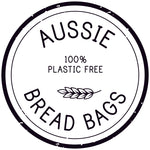A nice simple one to kick off the new year.
When you’re in the grocery store and you’re wanting to buy, let’s say honey, and you’re faced with the multiple brands, all prettily packaged, claiming they’re the best tasting and mostly competitively priced, which one do you go with?
Well, don’t just fall for the ‘local honey’ claim on the packaging. Marketing is a powerful tool, sometimes used to trick us into believing a certain thing rather than looking into it ourselves. Flip it over and have a read of the not so in your face text.
The back will tell you exactly where its manufactured, from imported and/or local ingredients, sometimes it will even tell you a little backstory of the company to give you a better idea of who you'll be supporting if you buy that product.
This principle can be followed with all products. From food through to furniture.
To begin with, grocery shopping may take you a little more time to suss out all the best brands to be buying for your family, but it pays to spend the extra time. And soon, you’ll just know the brands the same as you do now. Although it does pay to keep checking the back every now and then, especially if its been rebranded. That way you know you’re still supporting what you originally chose to.
Also, for a product such as honey, ideally down the track, you could skip the grocery store altogether and search for a local bee keeper (most suburbs will have at least one) who you can buy honey direct from. Re-use the containers (best sustainable choice) and support a family direct.